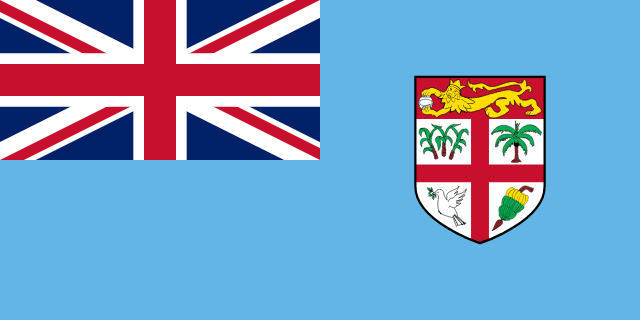Country Information
| Sovereign State | Yes |
| Country Codes | WS, WSM, 882 |
| Official Name | Independent State of Samoa |
| Continent | Oceania |
| Capital | Apia |
| Government Type | Parliamentary Republic |
| Currency | Samoan Tālā (WST) |
| Calling Code | +685 |
| Member Of | United Nations, Commonwealth of Nations, Pacific Community, Pacific Islands Forum |
| Population | Approximately 200,000 |
| Total Area | 2,842 km² |
| Highest Point | Mount Silisili (1,858 meters, 6,096 feet) |
| Lowest Point | Pacific Ocean (0 meters, 0 feet) |
| GDP Per Capita | USD 4,300 |
| Life Expectancy | 73 years |
| Internet TLD | .ws |
Samoa National Anthem
The Banner of Freedom
Samoa, arise and raise your banner that is your crown!
Oh! see and behold the stars on the waving banner!
They are a sign that Samoa is able to lead.
Oh! Samoa, hold fast
Your freedom forever!
Flags of Neighboring Countries



History of the Samoa Flag
The national flag of Samoa was officially adopted on February 24, 1949, while it was still a United Nations Trust Territory under New Zealand administration. It was retained upon independence on January 1, 1962.
The flag consists of a red field with a blue rectangle in the canton, bearing the Southern Cross constellation represented by five white stars. The color red symbolizes courage, the blue rectangle represents freedom, and the white stars stand for purity. The Southern Cross is a common motif in the flags of the Pacific region and symbolizes Samoa’s geographical location in the South Pacific.
The flag’s design was chosen to represent Samoa’s national identity and its aspirations as a sovereign state. The use of the Southern Cross connects Samoa with its Pacific neighbors, while the distinct color scheme distinguishes it from other nations’ flags.
Since its adoption, the flag has become a symbol of Samoan pride and unity. It is flown across Samoa and represents the nation in various international contexts, including sports events and diplomatic occasions. The Samoan flag embodies the spirit and heritage of the Samoan people, reflecting their culture, history, and the natural beauty of their islands.

